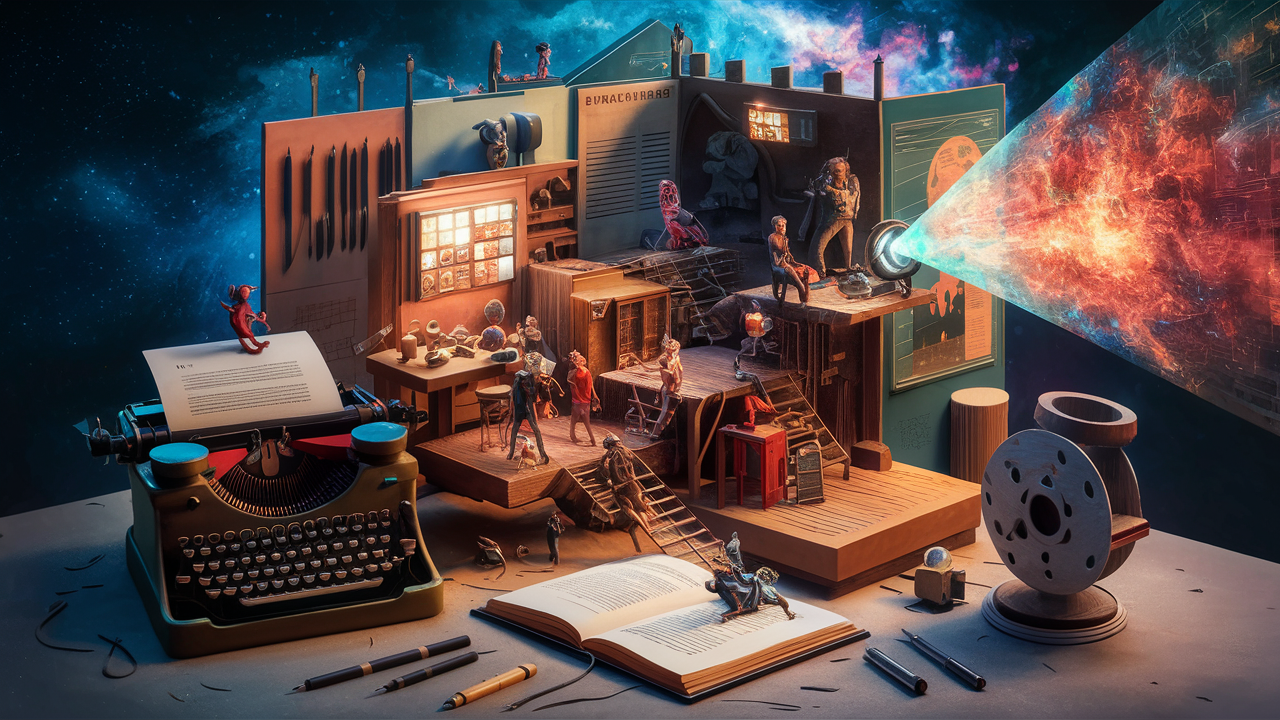Welcome to all the gamers and developers out there! What do you guys think? What are the core secrets behind the idea that turns a good game into a great one? Is it killer graphics? Epic soundtracks? Tight gameplay mechanics? We are sure all those things matter to you. But if we get real, it’s the storytelling that hooks our minds and keeps us coming back to play more. You want to know more about it ?? There is much to learn about storytelling and its role in game development.
Why Storytelling Matters For All Of Us
What games made you addicted in the last six months? It was about more than just earning more points and accomplishing missions. You played a lot because the story pulled you in and made you care about the main superheroes or characters. Right? Game-producing companies always come up with engaging storytelling to add depth and meaning to gameplay. It’s like turning it from a simple pastime into an immersive experience.
Emotional Engagement Make Players Care
Emotional connections build trust even in the games. Have you ever played games like Red Dead Redemption, God Of War, and Half-Life? These famous games stuck in the gamer’s mind due to their captivating storytelling. Games with good storytelling make you feel all sorts of things, from chunks of excitement and suspense to a bit of fear. When you actually start caring about the characters and what happens, you’re all HOOKED. The emotional bond makes gamers think about it even after they’ve stopped playing.
World-Building Creates Captivating Universes For Gamers
If we talk about World-building, it is a rich, detailed world that makes the game feel alive. Storytelling is the backbone element in creating these vibrant universes. Through powerful narratives, mythology, and character backstories, you can build a world that feels real and worth exploring. Players don’t play a game; they like to escape into a different world, and storytelling is the bridge that takes them there.
Lore and Background Provides Depth Over Breadth
Some games are bigger than we have thought about the world. For example, have you ever played a game where every corner of the world feels like it has a history? That’s the power of good lore and background storytelling. These things add layers of depth to the game, making the experience richer and more immersive. Whether it’s the ruins of an ancient civilization or the history of a magical artifact, these stories within the story make the game world more engaging and believable.
Character Development Turns Pixels into Personalities
We all love Spiderman, Superman and Thor. They are characters, and characters are the heart and soul of any game’s story. Through amazing storytelling, you can transform static characters into dynamic personalities that engage gamers easily. Engaging and well-developed characters have motivations, flaws, and growth arcs, making them feel more real and relatable. When players start caring about what happens to these characters, It means you’ve got them hooked.
Protagonists and Antagonists Are More Than Heroes and Villains
This is something amazing to know! You know, great games usually have main characters and bad guys who are not one-dimensional. Heroes aren’t always the good guys, and villains aren’t simply evil for no reason. Through great storytelling, game development companies create complex characters with understandable actions and reasons. Even if they’re on different sides, this complexity gets depth to the story and makes the conflict more interesting and the stakes even higher.

Narrative Techniques Is About How to Tell a Killer Story
Have people ever wondered how developers intertwine storytelling into game development to make it more appealing? Actually, they find several narrative techniques that can give their storytelling a connection. From linear narratives to branching storylines, how they tell their story can really affect the player’s experience. Let’s learn about a few techniques!
The Difference Between Linear and Non-Linear
You know that linear narratives often lead players down a specific path, making sure they go through the story as planned. It’s super great for tightly controlled and cinematic experiences. On the other hand, non-linear narratives give gamers more personalization by letting their choices influence the story. You know, in games like “The Witcher” or “Mass Effect,” where what gamers decide affects how things turn out. Each method has its perks, and the one you choose really depends on the kind of experience you desire.
Environmental Storytelling Is About Showing, Not Just Telling
The best thing about in-game storytelling is how the environment plays a huge role. With environmental storytelling, the game world itself tells the story to gamers. You might come across abandoned buildings, scattered notes, or visual cues that reveal a narrative without any dialogue. It’s like putting together a puzzle as you play, which makes it super interactive and immersive for gamers.
The Player’s Role As An Interactive Storytelling
Globally, games are famous and cool because they’re interactive. Unlike movies or books, games let you actually be part of the story. This interactive element totally changes the game (pun intended) for storytelling. It lets you shape the narrative, so you feel super connected and really into the whole thing.
What Is Storytelling in Different Genres?
Storytelling is more than just RPGs or adventure games. It works across all genres. You know, a captivating and good story gives gamers context and motivation even in a fast-paced FPS or an ordinary puzzle game. It’s what changes playing into playing with a purpose, you know?
Let’s Know A Bit About The Examples Across Genres
Have you ever played the game “Portal”? You can take it as an example. It’s a puzzle game at its core, but the darkly humorous story and the enigmatic AI GLaDOS add layers of intrigue and engagement. Or look at “Overwatch,” a team-based shooter with deep lore and character backstories that enrich the gameplay experience. No matter the genre, a well-told story can give a VIBE to the game.
Storytelling Gives You The Power To Talk To Your Audience
What is the point of talking a lot about storytelling here? Storytelling isn’t just a nice-to-have in game development—it’s essential. It creates emotional connections, builds immersive experiences, develops relatable characters, and transforms gameplay into a memorable adventure. Whether you’re an indie developer or part of a big studio, investing in storytelling can make your game the HOTTEST FAVOURITE in a crowded market because gamers never quit. Happy storytelling!







